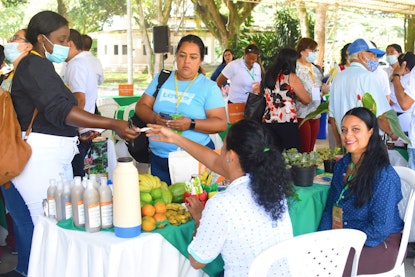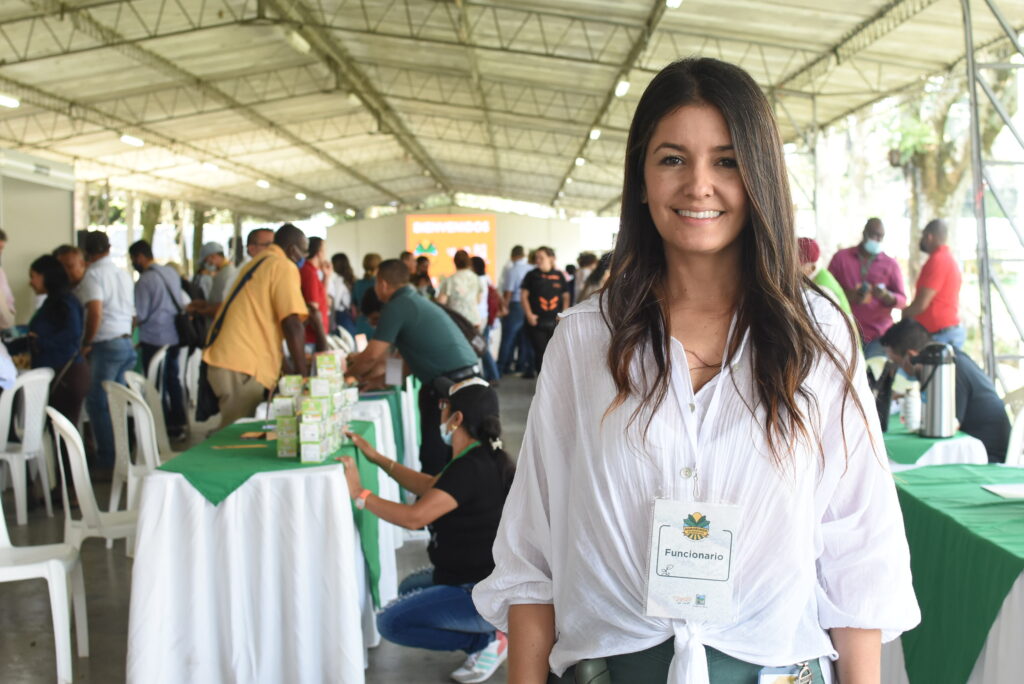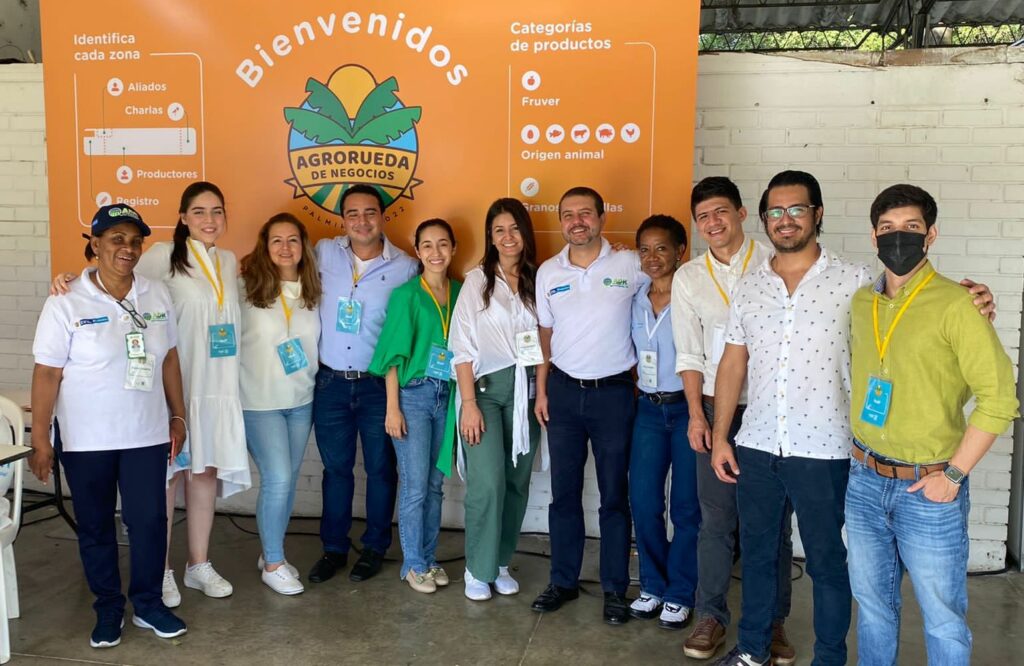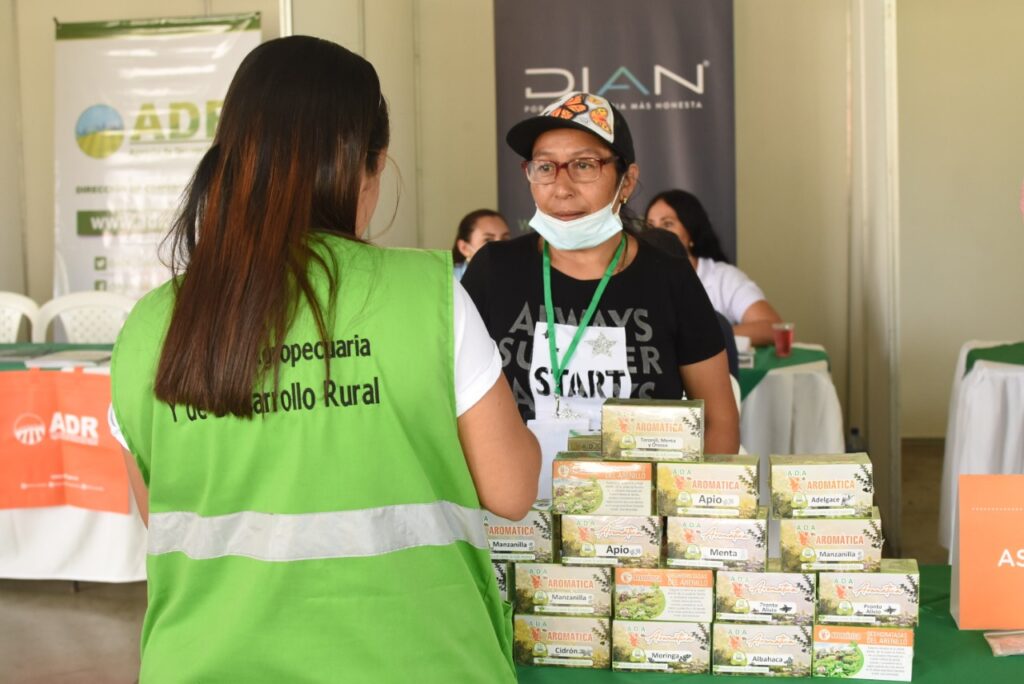Empowering women and rural farmers through procurement in Palmira, Colombia

Challenge: The city of Palmira in southeast Colombia has long been afflicted by armed conflict. Violence wrecked the local economy and the livelihoods of farmers, particularly women. Despite an improving security situation, the pandemic further stifled the city’s economic development. Small and women-owned businesses, although economically vital to the region, did not participate in the city’s public procurement.
Open contracting approach: Palmira’s government developed a strategy to promote local economic development, and increase vendor diversity by attracting more local and women-led businesses in key sectors such as food procurement. It established city-wide performance indicators and worked directly with farmers and agricultural cooperatives to remove the barriers to participation. The city identified policy and process reforms to make procurement simpler, more transparent, and more data-driven and publicly reported on its progress.
Results: Local producers became suppliers of Palmira’s school meals program and other food provision services for the first time. In total, 30% of the awarded value of school meal contracts went to seven agricultural cooperatives and eight independent farmers, benefiting 200 people directly. Three of these agricultural cooperatives include women-led producers, and two have women as their legal representatives. In all, small agricultural businesses earned COL 360m (US$75,000) from 57 contracts.
Broader city-wide open contracting reforms implemented since 2020 led to an increase in the use of the more transparent SECOP II procurement system, from 9% in 2018 to 99% in 2022, with the average number of bidders increasing from 1.6 to 5.7 for competitive procedures. The percentage of contracts that identify the gender of legal representatives in public contracts rose from 4% in 2020 to 37% in 2022.
The reforms were part of a larger Colombian project supported by OCP that has had an impact across the country. Read on to find out more…
When Luz Adriana Vásquez, then in charge of Palmira’s government strategy and public procurement, was evaluating the municipality’s school meal purchases in 2020 she was surprised. In one of Colombia’s largest agricultural regions, students were eating lentils imported from Canada at school. Even as their own families were cultivating a local variety of nutritious, high-protein beans at home.
Over 90% of Palmira’s residents live in rural areas. Poverty and economic instability have been persistent problems in the region. The impact of the armed conflict in Colombia has been particularly devastating for farmers, leading to the destruction of livelihoods and businesses. The conflict has fueled violence, displacement, and economic insecurity, making it difficult for farmers to cultivate their land and access markets. These challenges have been exacerbated by the COVID-19 pandemic. Women farmers have faced additional obstacles related to gender-based violence, discrimination, and lack of resources.
In 2020, Colombia sought to encourage rural farmers to participate in local food chains by introducing new rules that required 30% of the food procured by the government to come from local producers (Law 2046 and Decree 248). Where others might have seen a challenge, Vásquez saw an opportunity to do better, especially to stimulate the local economy after the pandemic recession. For her, “public procurement has strategic value to improve citizens’ lives, support the inclusion of women-led businesses and reduce poverty. It’s not just an administrative process.”

Implementing open contracting in Colombia’s regions
Under a project financed by the UK Prosperity Programme, OCP worked in nine regions of Colombia to accelerate digital transformation, advance data-driven decision-making, implement gender-responsive procurement, and promote civic oversight of public procurement through hands-on technical assistance in open contracting strategies.
This led to remarkable results. From 2018 to 2022, in target regions, the adoption of the country’s transactional electronic procurement system jumped from 15% to 94.5%. In other regions of the country, adoption was 23% in 2022 up from 8.8% in 2018.
Target regions also saw an increase in competition. During the program implementation, the value awarded through open processes went from 50% to 65% of total procurement spending. By the end of the program, target regions were awarding 64% more of their procurement spending through open processes than the rest of the country and the average number of bidders was 46% higher.
A new guide captures Palmira’s experience implementing inclusive and gender-responsive public procurement strategies for other municipalities.
From desk to farm: kickstarting the process to increase inclusion
Vazquez set up a multidisciplinary team including procurement experts, officials from the education and agriculture secretaries, the open government team, and communications specialists to develop a four-step process to revamp the city’s food procurement with inclusion in mind.
(1) Review the local supply chain. To understand the opportunity to bring local producers into the supply chain, her team evaluated the needs of more than fifty buyer agencies. “The yearly procurement plan is an under-used tool. We focused on the plan, the data, and the purpose of what we want to achieve, when, how, and where,” says Vásquez.
Then, Palmira carried out in-depth market research. Reviewing previous years’ contracts and talking to the local producer associations directly, they mapped the production capacities of the main crops available, such as beans, cilantro, eggs, and salads. Small-scale farmers organized in local associations made up 62% of the local producers.
“Going to the countryside made all the difference; getting to know the associations and producers. We built capacity to show that there is an opportunity to change how things are done”, says Maria Alejandra Lopez, who led the project team.

(2) Reform local procurement processes. Knowing there was a market that could deliver, Palmira went on to review the procurement process and redesign it to increase participation. While making it more open using the transparent e-procurement platform SECOP II, they also included specific conditions in the tender documentation so that local producers could participate either directly or as part of the value chain.
One key reform included provisions to ensure farmers serving as subcontractors were paid upfront. This provided participating businesses the financial stability needed to invest in their companies, purchase equipment, and hire additional labor. This approach can help increase productivity and promote economic growth in rural communities, ultimately leading to more stable and sustainable livelihoods for farmers.
A dashboard collected the data about the agricultural products and their producers to connect them with public buyers – and it was publicly available to everyone.
(3) Educate and engage local producers. Next, Palmira worked directly with producers to prepare them for participating in the process. They connected them to the supply chain and logistical intermediaries through business fairs and other participatory spaces, which allowed them to ensure quality standards and links between the different actors.
“Ecogranja has benefited from public procurement by increasing our revenue and our visibility in the business fairs, and through the city’s support to prepare us as a supplier. We’ve been able to improve our processes and even sell to more public agencies,” says Natalia del Castillo, Ecogranja la Francia
Palmira also developed a dedicated microsite in language that was easy-to-understand. It published current opportunities and explained the process of doing business with the city, including key concepts. More targeted channels, such as Whatsapp, helped Palmira reach out to producers directly where they were in the rural areas – “en el territorio”.
(4) Test, assess, and scale. Palmira kicked off the process with a pilot project focusing on the school meal program and is now expanding its lessons to the rest of the city’s food purchases. It also invested in building the capacity of all actors involved to ensure the sustainability of the process, using the social proof from the early tests to build momentum and trust.

Results
Palmira is the first city in the entire country that is implementing the new legislation, becoming a reference for integrating local producers into public procurement. “The transformation has to start inside the public entity. We looked at what tools we had, and what we could leverage to drive innovation,” says Vásquez.
Having had no contracts before, small agricultural businesses now benefit from 57 contracts worth COL 360m (US$75,000).
Without increasing the overall budget, 30% of the value of food procured for the school meals program is now bought from these rural producers – benefiting seven cooperatives and eight independent farmers, a total of 200 people directly. Three of these agricultural cooperatives include women-led producers, and two have women as their legal representatives.
In many cases, the changes allowed local producers to offer more competitive rates because they didn’t have to rely on costly middlemen to work with government buyers. Although some small producers in very remote areas continued to favor working with intermediaries who took care of transporting the goods.
The city-wide open contracting reforms implemented since 2020 led to an increase in the use of the more transparent SECOP II procurement system, from 8.8% in 2018 to 99% in 2022, with the average number of bidders increasing from 1.6 to 5.7 for competitive procedures.
Now, the city is developing models to replicate their approach to promote the participation of women-led agricultural cooperatives in other regions. Vásquez says the team presented their experience to the National Agency for Rural Development and the Ministry of Education through its national school meals program “Food for Learning” (Alimentos para Aprender) who are including it in their guidance.
At the national level, Colombia has taken important steps to use public procurement as a lever to empower actors that have been historically excluded from the economy, including women businesses and small and microbusinesses. An initial step was issuing a new law to foster entrepreneurship (Law 2069 of 2020) and a decree guiding its implementation (Decree 1860 of 2021). These legislative reforms provided for the first time a clear definition of “women-led” and “women-owned” businesses, and adopted technical measures to facilitate their participation in public tenders. 2020’s Law 2046 which requires 30% of food to be acquired by local producers has also been a tool to promote a more sustainable and socially inclusive public market.
Public procurement has strategic value to improve citizens’ lives, support the inclusion of women-led businesses and reduce poverty. It’s not just an administrative process.
The country’s new National Development Plan makes a central bet to empower microbusinesses and cooperatives (the “people’s economy“) to drive the country’s economic growth and promote diversity, equity, and inclusion. Some of these measures relate to improving the information systems about these businesses and provide technical support and process simplification to enable their participation in the country’s procurement processes. Among others, the Plan aims to develop and strengthen an open data strategy to track and increase the participation of women-led businesses in public procurement. The experience of Palmira will be critical for successfully implementing these initiatives: if it works, this approach could serve as a model for other countries to advance greater inclusion and empowerment in global supply chains.
The experience in Palmira shows that this isn’t just a necessary strategy, but a smart one.
Luz Adriana Vásquez summarizes: “Just spending the budget is the minimum. If you really look at the data you can do so much more, you can add to the execution and build social inclusion, you make the citizens fall in love with better procurement”.
Photo credits: City of Palmira.
OCP supported the project with financing by the UK Prosperity Programme and the BHP Foundation, with additional support to document insights provided from Canada’s International Development Research Centre’s Open Data for Development program.